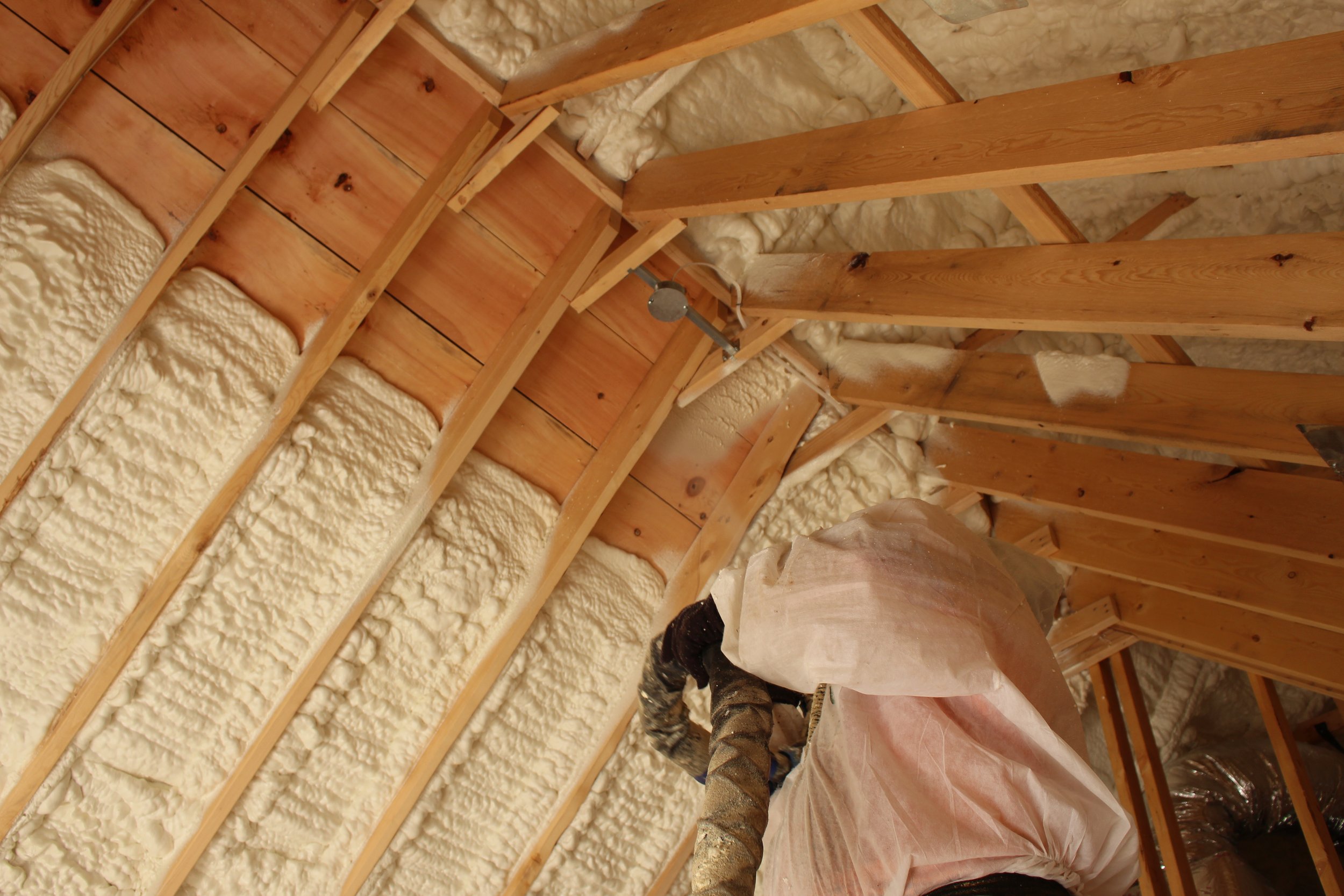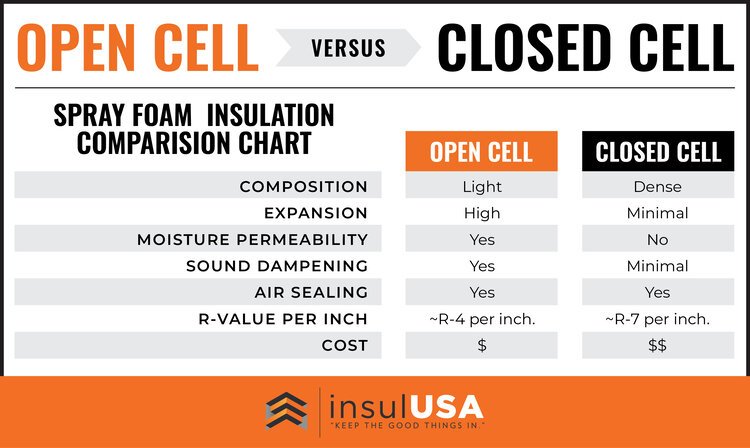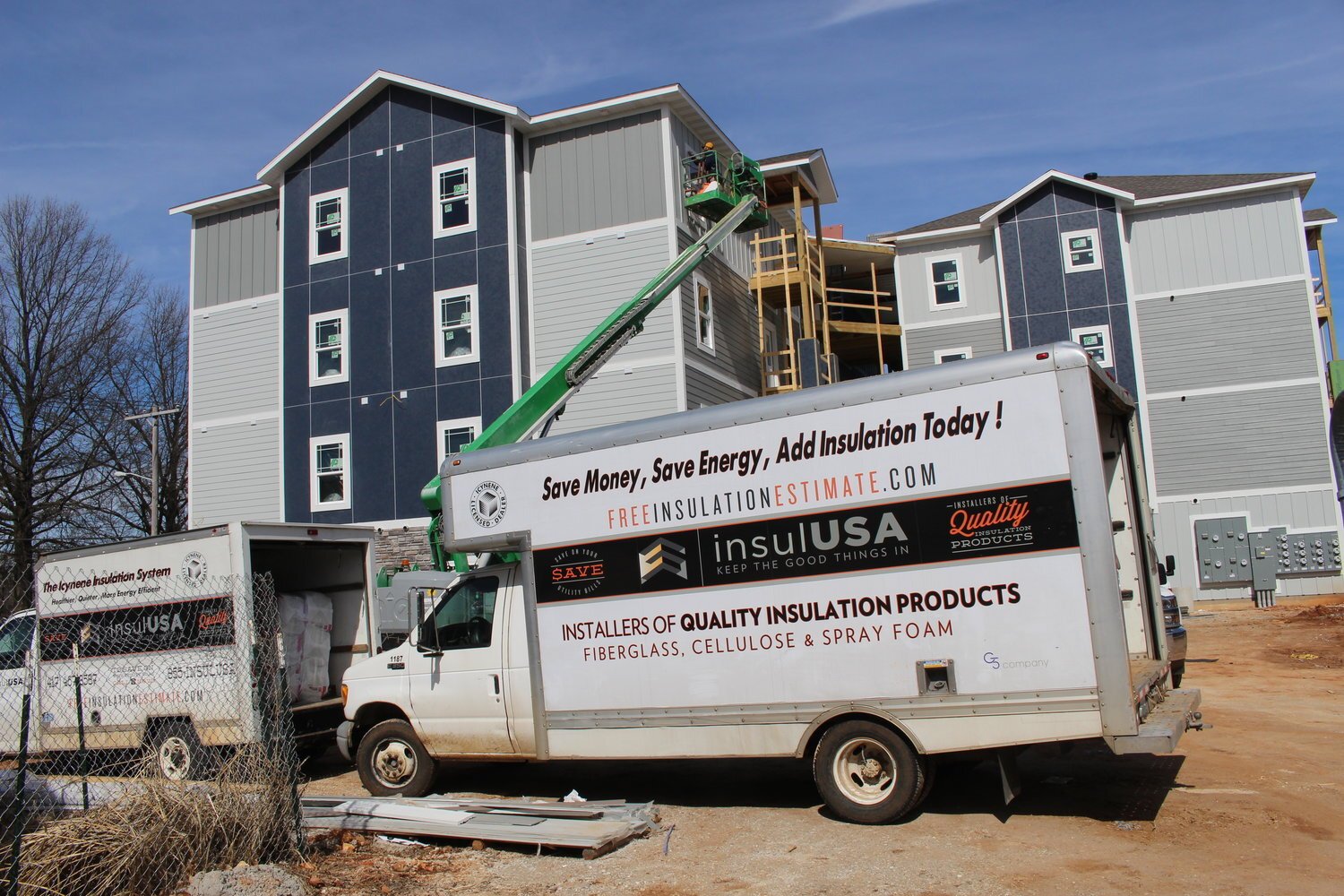
Spray Foam Insulation
ABOUT
Spray Foam Insulation
Spray Foam is the most efficient type of insulation. When correctly applied, foam insulation will completely seal the building envelope, improving the structures overall energy efficiency. Additionally, spray foam insulation can protect your home from air and moisture intrusion, help as a sound barrier, and act as a pest inhibitor. It is used in residential, commercial, and industrial applications and is applied directly to all types of construction materials, from wood and steel to masonry and concrete.
The high thermal resistance of the product gives polyurethane spray foam insulation an R-value typically around R-7 to R-8 per inch of applied thickness, enabling it to provide more thermal resistance with less material than any other type of insulation. In comparison, typical fiberglass insulation only provides an R-2 per inch.
Spray Foam Insulation Options
Once you decide you’re sure you want to go for the energy efficiency of spray foam, the next step is to decide which type of spray foam insulation is best for your project - open or closed cell spray foam. The two types of are vastly different, with similarities in the sense that they’re both applied in the same manor and both have superior air sealing properties, however - their cell structure is what sets the apart. Closed cell spray foamis durable like a spray in truck bed liner, while open cell is lighter, and more like a sponge.
Insulate attics, WALLS, AND crawlspaces for the best energy savings
Spray foam can be sprayed into walls, ceilings, floors, crawlspaces and attics to reduce energy waste and reduce heating and cooling costs. Spray foam is an air barrier insulation that creates a healthier, quieter and more energy-efficient home for you and your family.
Our certified installers will ensure our spray foam insulation is installed properly and that you are getting the leading brand of foam, done right.
Spray Foam Insulation Applications
Spray foam insulation can be installed in both new and existing homes, shop buildings, and even in the most unusual designs and applications. The compound adheres to wood and steel frames alike and is effective in any climate. Spray foam’s expansion once applied ensures that small gaps and voids are sealed. This is critical for older homes, since they begin to settle over time and allow for a majority of the homes energy loss.
When you put spray foam anywhere in your home, the general benefits apply, but there are also additional reasons to consider:
Improved HVAC Efficiency
Lower Heating and Cooling Bills
Increased Comfort
Effective Soundproofing
Protection Against Ice Dams
Cleaner Indoor Air
Longer Lasting
Increased Resale Value.
Comparison image displaying open-cell and closed-cell spray foam insulation, showcasing their different characteristics and applications.
Spray Foam Insulation Options
Spray Foam Insulation Advantages
Improved Comfort
Because spray foam insulation seals the building envelope, your home has virtually no drafts.
It Lasts
Traditional insulation can lose its effectiveness over time - spray foam performs the same for decades
Improved Indoor Air Quality
Aside from improved comfort from spray foam insulation’s air sealing properties, it also reduces allergen infiltration.
Strengthens the structure
Spray foam essentially glues the structure together, adding strength to the property’s overall structure.
Environmentally Friendly
By allowing you to improve your home’s energy efficiency, spray foam reduces your carbon footprint.
Reduces Sound
Particularly Open Cell spray foam - it does a great job absorbing sound waves providing a quieter home.
Blog Posts About Spray Foam Insulation
At InsulUSA, we believe that knowledge is power when it comes to making informed decisions about spray foam insulation for your home or business. That's why our recent blog posts have been focused on unraveling the mysteries surrounding spray foam insulation and providing readers with valuable information they can use.
Recent Spray Foam Insulation Jobs
Ready to get a Spray Foam Insulation EstimAte?
It’s free to see what we can do for you - click the button below.
Two Locations to serve your Spray Foam insulation needs
Map showing InsulUSA's two locations in orange, and other G5 Enterprises business locations across Missouri and Arkansas.
As part of The G5 Family of Companies, insulUSA is dedicated to delivering exceptional services and premium products. Partner with us to ensure the success of your project, no matter the location. From Springfield to Kansas City, we collaborate wholeheartedly to meet your needs.
Spray Foam Insulation FAQs
What is spray foam insulation and how does it work?
Spray foam insulation is a type of insulation material that is applied as a liquid and expands into a foam, creating an airtight seal. It works by filling gaps and cracks in walls, ceilings, and floors, preventing air leakage and providing superior insulation.
What are the benefits of using spray foam insulation?
Spray foam insulation offers several benefits, including improved energy efficiency, reduced utility bills, enhanced indoor comfort, noise reduction, and increased structural strength. It also acts as a barrier against moisture and helps prevent the growth of mold and mildew.
Is spray foam insulation safe for my health and the environment?
When installed properly, spray foam insulation is safe for both health and the environment. However, during installation, it is recommended to vacate the premises as the chemicals used may emit strong odors. Once the foam has cured, it becomes inert and does not release harmful substances.
How long does spray foam insulation last?
Spray foam insulation is known for its durability and longevity. When installed correctly, it can last for several decades without losing its insulating properties. It does not sag or settle over time, ensuring consistent performance throughout its lifespan.
Can spray foam insulation be installed in existing homes?
Yes, spray foam insulation can be installed in existing homes. It can be applied to various surfaces, including walls, attics, crawl spaces, and basements. However, it is important to consult with a professional insulation contractor to assess the suitability of your home and determine the best application method.
Is spray foam insulation cost-effective?
While the upfront cost of spray foam insulation may be higher compared to other insulation materials, it offers long-term cost savings. Its superior insulation properties reduce energy consumption, resulting in lower utility bills. Additionally, its durability eliminates the need for frequent replacements or repairs, making it a cost-effective choice in the long run.












